Summary from Twitter thread:
🚨Now out in Psychological Science! Beyond WEIRD Psychology: Measuring and Mapping Scales of Cultural and Psychological Distance
https://journals.sagepub.com/doi/10.1177/0956797620916782
1/ The world is not WEIRD vs non-WEIRD.
How psychologically and culturally distant is the US from Canada? China from Japan?
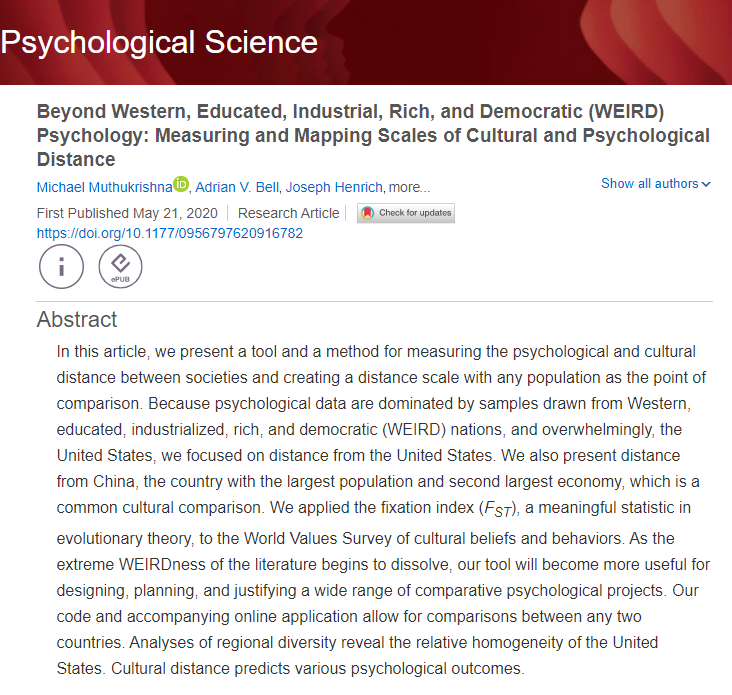
2/ CFst is a lens for looking at differences between and within populations. It’s flexible, robust, and theoretically-meaningful.
Issue with existing approaches:
1. Societies are distributions of traits. Mean estimates are misleading. Brazil looks like Turkey on Hofstede:
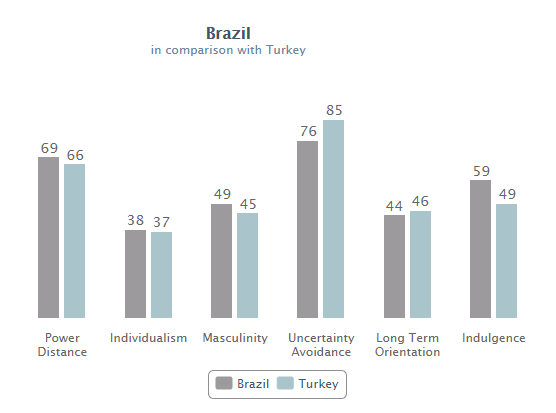
2. Variance captures some of this (Turkey is culturally tighter than Brazil), but how do you capture nominal traits like political priorities: “give people more to say”, “maintain order in the nation”, “fight rising prices”, or “protect freedom of speech”?3. Genetic distance is a proxy, but can be misleading: Hong Kong is more than an order of magnitude more genetically similar to China than to Britain, but is culturally similar to both due to Britain’s century-long history in Hong Kong.4. Linguistic distance is better, but the resolution is low. Difficult to distinguish the cultures of Australia, Canada, the UK and the US, all of whom speak English.3/ Fst is theoretically meaningful within evolution: measures how genotype frequencies forsubpop differ from expectations if there were random mating over the entire population. i.e. it measures the degree to which the populations can be considered structured and separate.4/ For cultural inheritance, this is directly analogous to between-group differentiation caused by selection, migration, and social learning mechanisms.5/ Cultural FST (CFst) is calculated in the same manner as Genetic FST, but instead of a genome, we use World Values Survey as a “culturome”.
Questions as loci.
Answers as alleles.
CFst can handle continuous, binary, or nominal traits.6/ Because traits tend to cluster within a society, it’s also robust to missing questions or data. You can drop even 50% of data or questions and get very little deviation.
Even if we don’t ask every conceivable question, if you ask a broad range, you’ll get a similar answer.
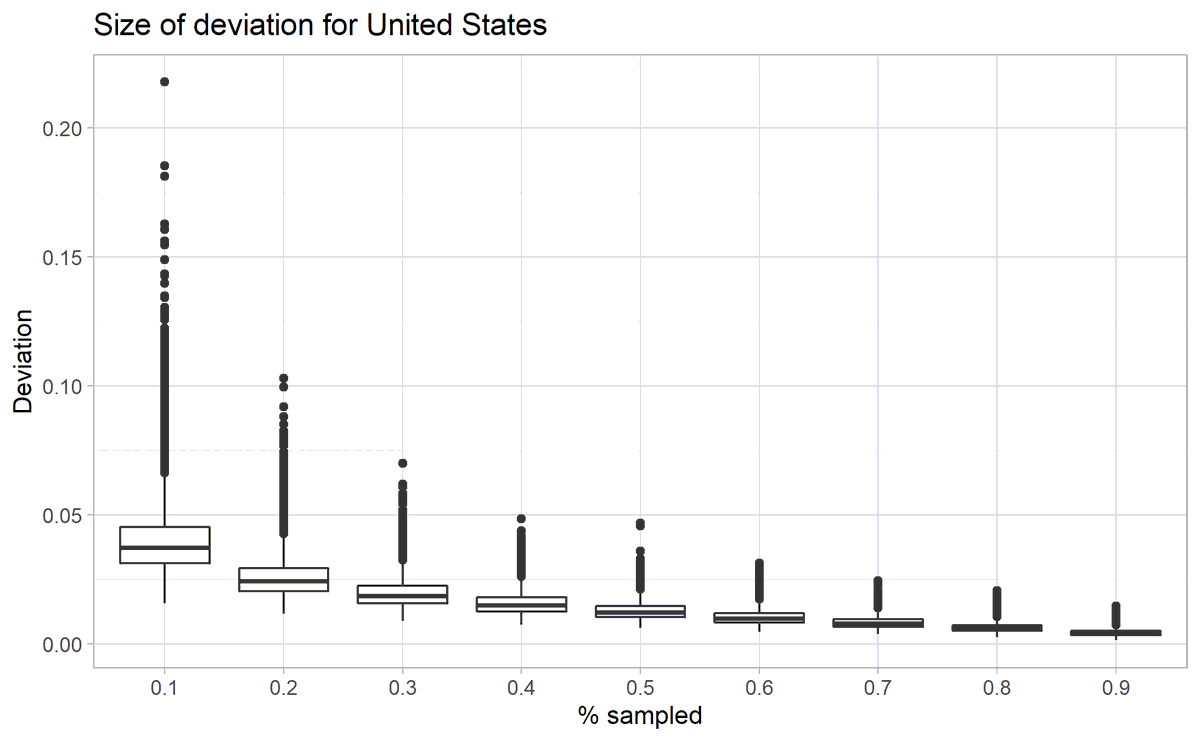
Note: Traits cluster within, but not necessarily between societies. 7/ We create an American scale (useful as a proxy WEIRD scale) and a Chinese scale as an example.
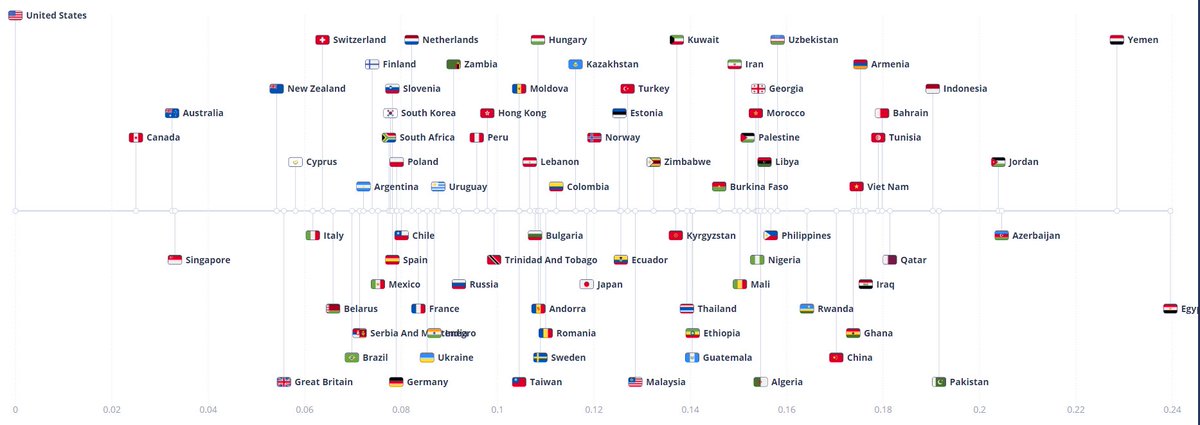
8/ American scale correlates with cultural dimensions, tightness, values, extraversion and personality variance, and many behavioral measures: blood donations, diplomat parking tickets, corruption perceptions, honesty in the wallet drop study:

Distance…
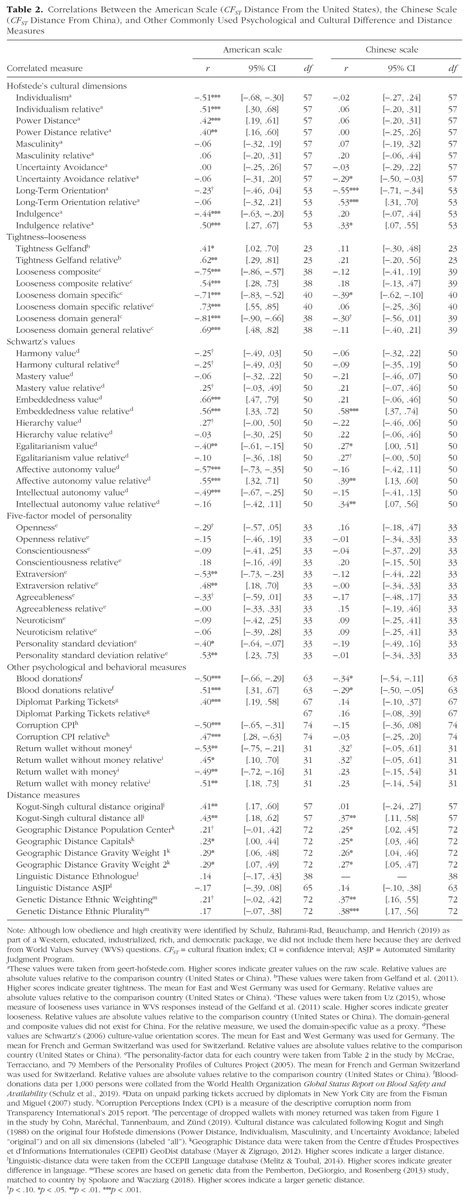
9/ The Chinese scale is less predictive – why? Two possibilities:
1. WEIRD nations are truly psychological outliers in some objective sense. Plug for @JoHenrich ‘s brilliant new book: amazon.com/WEIRDest-Peopl…
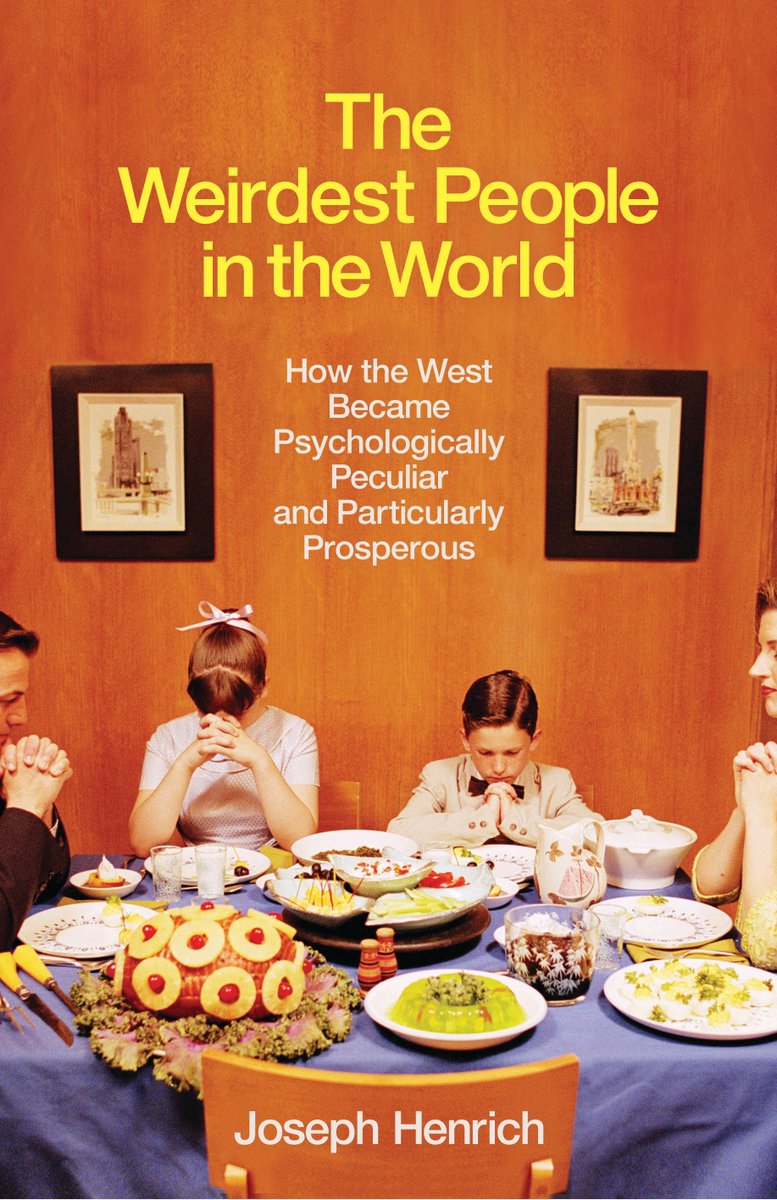
2. Psychological measures have been studied because they are remarkable to WEIRD researchers.
If psychology was dominated by Chinese psychologists, we would see a different set of psychological outcomes covered in textbooks. 10/ Resolving which of these explanations is correct will require greater diversity in both researchers and samples.11/ Final caveats:
1. Similar distance from US / China does not mean cultural similarity. Japan & Norway are similarly distant from US, but are not necessarily similar to each other.
Like Colombia and the UK are similarly geo distant from US but nowhere near each other.
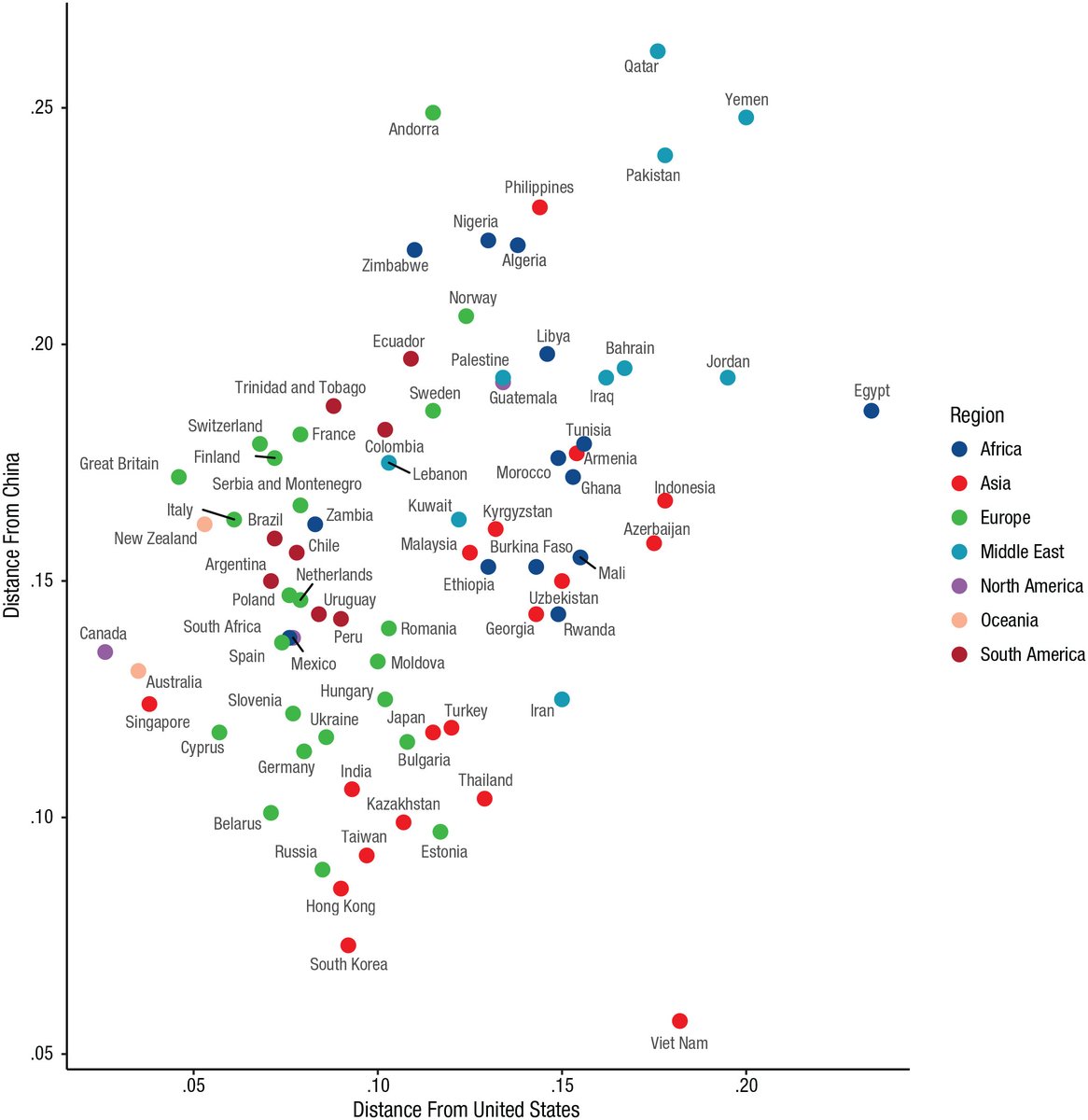
Culture is a large n-dimensional space. 2. The US is relatively homogeneous (note, it’s a loose country, but similarly loose in all regions relative to other large populations). Societies are not homogeneous. They have multivariate distributions of many traits along many dimensions with structure within structure.
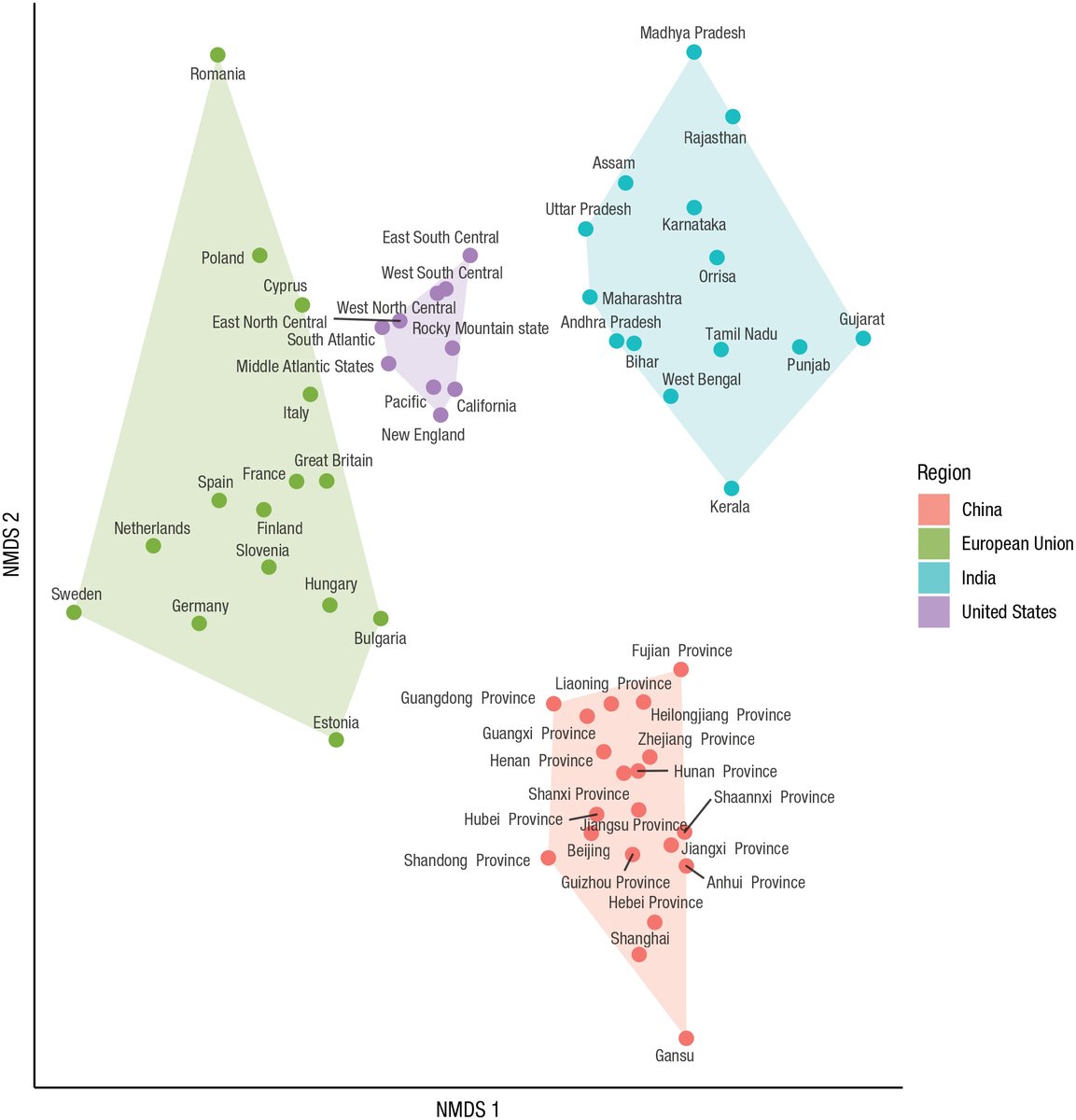
There are likely to be cultural differences between not only regions within a country but also ethnicities, religions, socioeconomic class, and other groupings. These are all avenues for future research. 3. We need more data from the Middle East and Africa! We have every reason to suspect the American scale will continue to stretch as we map out these psychological terrae incognitae.These regions (and others like South Pacific) are a treasure trove for the next generation of cultural psychologists. Not just about psychological outcomes, but also questions we ask, and way we organize psychology. What we know is the tip of the iceberg of the human psyche. END I lied. There’s also a website: culturaldistance.com








